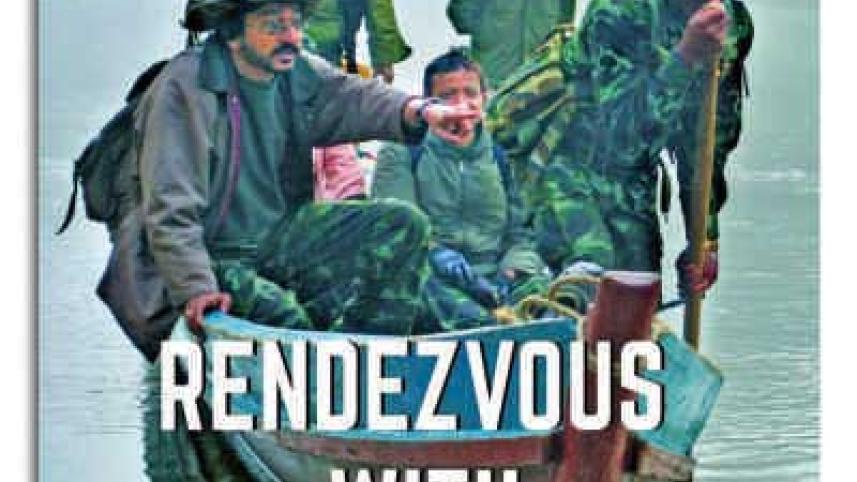In the Company of Rebels

Rajeev Bhattacharyya, a seasoned journalist and passionate advocate of truth on the ground – stands tall to tell the story of insurgency in India's northeast. Rendezvous with Rebels is the passionate account of his most daring journey to the rebel bases in eastern Nagaland in Myanmar, staying at the United Liberation Front of Assam (ULFA) camp. He along with a fellow journalist, Pradip Gogoi spent over four months to complete their rendezvous in the tough and forbidden terrains to interview ULFA Chief Paresh Barua and the Chairman of Nationalist Socialist Council of Nagaland (NSCN), SS Khaplang. Bhattacharyya has been covering the conflicts in the region for yesrs.
In the voyage, he interacted with rebels from other banned outfits like the NDFB, UPPK and PLA and for most of the interviewed people, this was an unprecedented experience. His visit four years back into these terrains were not sudden, rather the fruition came after Bhattacharya's long struggle to get in touch with the top ranks of ULFA to interview them.
This was indeed a supremely challenging task, considering how alarmingly ULFA and other outfits are viewed by outsiders. For the same reasons, his rendezvous with rebels caused unease and raised concern in official circles and made the then Union Home Minister P Chidambaram officially get in touch with Myanmar, about the whereabouts of Bhattacharya and the fellow journalist. This came after they remained out of touch for over three months – and in their own confession, they were not sure to return from the 'valley of no return'.
The ULFA was founded on 7 April 1979 in Sibsagar, Assam by some youths which included Paresh Baruah, Arabinda Rajkhowa, Anup Chetia, Pradip Gogoi, Bhadreshwar Gohain and Budheswar Gogoi – these all are covered well in this book. The organisation's purpose was to engage in an armed struggle to form a socialist Assam and liberate from the alleged colonial rule of India which in their perception was exploiting the natural and human resources of the region and making it weak inside.
But they contradicted themselves by adopting to violent strategies, which travelled farther across the line and damaged the interests of local people as well. The same happened to be true in case of other rebel outfits of the northeast.
Quite noticeably, within a short span of its formation, the ULFA emerged as one of the most powerful and violent insurgent outfits in Southeast Asia, largely because of the immense popularity it enjoyed during the first decade of its struggle as well as its economic power which in turn helped it in bolstering its military capabilities.
As the history suggests, in the early 1990s, ULFA launched an aggressive campaign against security forces, political opponents, and blasted rail links.
This book covered the antecedents of armed movements in northeast till 2011 – mostly through firsthand accounts. This makes the book, an essential read for the readers who want to go further from the excellent books written on this region by Varrier Elwin, B G Verghese, Sanjoy Hazarika, Shekhar Gupta and others.
As of now, with the arrest and deportation of top ULFA leaders by the Bangladesh to India, the once stalled peace process witnessed a new high time when the jailed ULFA leaders took the initiative in forming a "Citizen Forum" comprising intellectuals, writers, journalists, sympathisers and professionals from various other fields that would act as a catalyst in bringing the Government of India and the rebel ULFA to the negotiating table. A leader of Arabinda Rajkhowa's height came out of the mainline ULFA to adopt a revisionist path that shows how with unease, things are internally shaping up inside ULFA.
Beautifully written with the subtle details of the innermost elements of the armed rebellion in the region, Rajeev Bhattacharyya's Rendezvous with Rebels is a path-breaking study to meet India's most wanted men, who wielded strong influence in the region and changed its course forever. Effortlessly humane, the author has shown the eye for details – so the vivid account of the hideout camps, and activities there – from arms training to football matches are the salient features of this book.
Nevertheless, a journalist and citizen's role is not at odds with all these. Rajeev Bhattacharyya is a son of the soil; He has proved it through this book – and his upcoming projects on northeast, lined-up to be released in near future.
The writer is New Delhi based Journalist and writer, he can be reached at: summertickets@gmail.com



 For all latest news, follow The Daily Star's Google News channel.
For all latest news, follow The Daily Star's Google News channel.
Comments